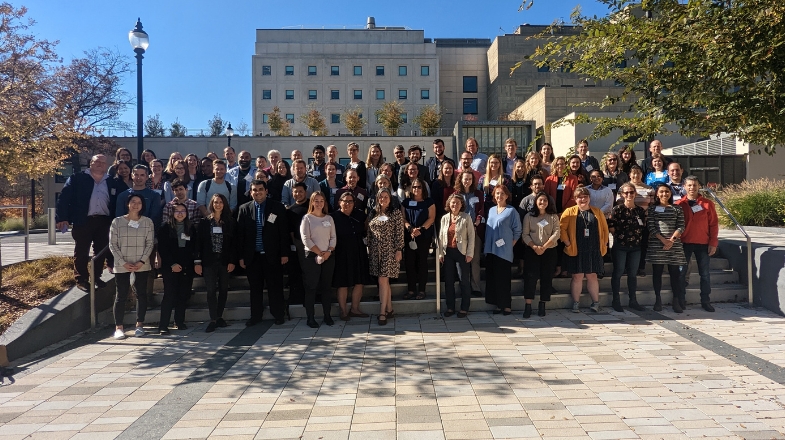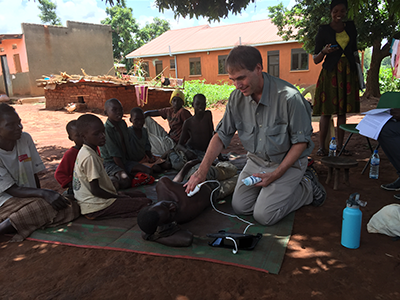Global Health

The public health burden of birth defects/congenital anomalies is on the rise in low-to-middle-income countries (LMICs). Birth defects disproportionately affect children in LMICs due to limited access to poor quality healthcare services. The WHO estimates that ~3.2 million birth defects-related disabilities kill 300,000 newborns every year. The rate of birth defects in the Democratic Republic of the Congo (DRC) is estimated at 71 per 1,000 children, making the DRC the highest regionally, and one of the highest in the world. Congenital anomalies affect individuals, their families and societies. Early and accurate identification and characterization of these conditions is fundamental for optimal management. While many birth defects in LMICs are a result of environmental factors/nutrition, others have genetic influences. However, access to genetic resources is extraordinarily limited, as is the case in the DRC. This high prevalence and lack of specialized healthcare make DRC an impactful model for developing services for screening of syndromic birth defects in LMICs. The team is developing tools for newborn screening using genetic approaches, as well as facial recognition methods, in collaboration with Marius George Linguraru, D.Phil., M.A., M.Sc. (Sheikh Zayed Institute). The team is also identifying environmental factors, such as the microbiome as modulator of disease severity.
Our Team
- Emmanuèle Délot, Ph.D.
- Robert Freishtat, M.D., M.P.H.
Focus Areas
- Precision medicine
- Etiology of differences of sex development (DSDs)
- Neural stem cells and brain sex differences
- The DSD-Translational Research Network (DSD-TRN)
Faculty with Interests in Gender-Based Biology and Precision Medicine
- Emmanuèle Délot, Ph.D. (Lab site)
- Robert Freishtat, M.D., M.P.H. (Lab site)
- Hayk Barseghyan, Ph.D.
Related News
-

Think tank improves care for Malawian children with seizures, epilepsy
October 02, 2024 -

First meeting of the GREGoR Consortium Held at the Research & Innovation Campus
December 12, 2022 -

Penicillin slows impacts of rheumatic heart disease in Ugandan children
November 15, 2021
